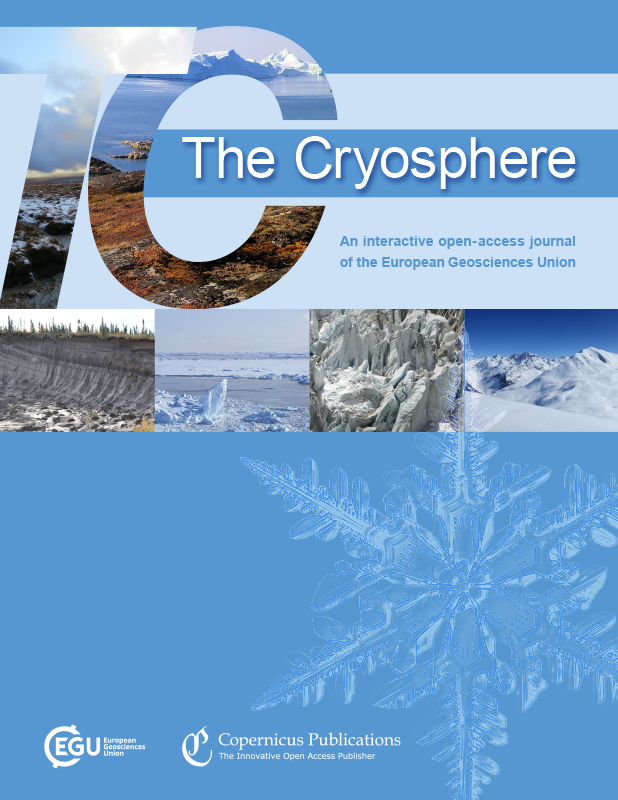静止峡湾基底冰川融化的水力抑制
IF 4.4
2区 地球科学
Q1 GEOGRAPHY, PHYSICAL
引用次数: 2
摘要
摘要使用一个概念模型,我们研究了岩床峡湾中水力控制的交换流如何影响基底冰川融化与峡湾外温暖的中间大西洋水(AW)特征之间的关系。我们表明,如果AW界面高度降低、AW温度升高,或者冰下排放增加了冰川改性水的产量,交换流可能会被迫进入水力状态。在水力状态下,通过底坎的热传输成为基底熔体的速率限制因素,而基底熔体的速度受到抑制。冰-海洋边界附近的过程和液压控制的交换流之间的相互作用决定了熔体动力学,并且基础熔体对AW温度变化的敏感性降低。模型结果与Petermann、Ryder和79∘ 格陵兰岛北部的N座冰川。本文章由计算机程序翻译,如有差异,请以英文原文为准。
Hydraulic suppression of basal glacier melt in sill fjords
Abstract. Using a conceptual model, we examine how hydraulically controlled exchange flows in silled fjords affect the relationship between the basal glacier melt and the features of warm intermediate Atlantic Water (AW) outside the fjords. We show that an exchange flow can be forced to transit into the hydraulic regime if the AW interface height decreases, the AW temperature increases, or the production of glacially modified water is boosted by subglacial discharge. In the hydraulic regime, the heat transport across the sill becomes a rate-limiting factor for the basal melt, which is suppressed. An interplay between processes near the ice–ocean boundary and the hydraulically controlled exchange flow determines the melt dynamics, and the sensitivity of the basal melt to changes in the AW temperature is reduced. The model results are discussed in relation to observations from the Petermann, Ryder, and 79∘ N glaciers in northern Greenland.
求助全文
通过发布文献求助,成功后即可免费获取论文全文。
去求助
来源期刊

Cryosphere
GEOGRAPHY, PHYSICAL-GEOSCIENCES, MULTIDISCIPLINARY
CiteScore
8.70
自引率
17.30%
发文量
240
审稿时长
4-8 weeks
期刊介绍:
The Cryosphere (TC) is a not-for-profit international scientific journal dedicated to the publication and discussion of research articles, short communications, and review papers on all aspects of frozen water and ground on Earth and on other planetary bodies.
The main subject areas are the following:
ice sheets and glaciers;
planetary ice bodies;
permafrost and seasonally frozen ground;
seasonal snow cover;
sea ice;
river and lake ice;
remote sensing, numerical modelling, in situ and laboratory studies of the above and including studies of the interaction of the cryosphere with the rest of the climate system.
 求助内容:
求助内容: 应助结果提醒方式:
应助结果提醒方式:


